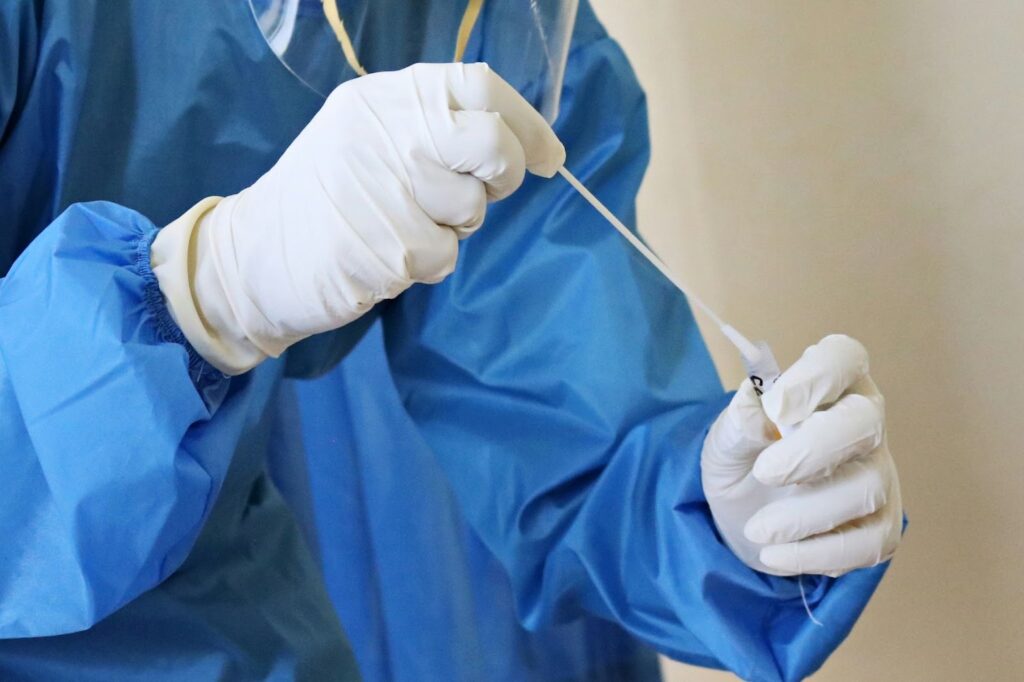
An email sent to the Howard community by Ebony Copeland, the director of the HU Student Health Center, announced that required isolation procedures for those who test positive or are in close contact with those who have would be discontinued.
This decision came after the Centers for Disease Controls altered the COVID-19 Isolation Guidelines at the beginning of March, where those who test positive are not required to isolate themselves for the normal five days, whether they’re symptomatic or asymptomatic.
The March 18 email said that students would now have to treat COVID-19 like “any other viral illness, such as the flu,” and mentioned that students no longer needed to report their positive results to the health center.
In an interview with The Hilltop, Copeland said that COVID-19 is now to be managed like “any other respiratory illness,” where the standard is to stay home until the patient is “afebrile,” meaning not feverish, for at least 24 hours without the help of medication.
Copeland recommended that students who test positive for COVID-19 continue to stay home, but the severity of the situation has shifted with the decrease in cases.
“We’ve gone from COVID-19 being a pandemic to it being endemic, similar to the flu or other coronaviruses that cause the common cold,” she said.
While the number of positive cases in the U.S. has decreased overall, Copeland said there has also been a significant decrease in the number of positive cases on campus from last year and last semester.
She did not share raw statistics with The Hilltop due to the concern about the public’s misinterpretation of the numbers.
“There have been weeks where we’ve had no positive COVID-19 tests,” Copeland said, referring to this school year. “This has not happened in any of the years since 2020, so it’s significantly lower.”
Copeland explained that the only significant changes within the protocol included Howard no longer relocating on-campus students to isolation rooms, students no longer needing to report their positive results and the health center not giving students a written excuse for absence from class for five days based on their positive test results.
The excuse would instead be based on the state of their illness and symptoms.
“If we were going to excuse the student, it would be more related to how sick they are, similar to the flu. If someone came in sick and the provider felt they needed two days, they would give them an excuse for that,” Copeland said.
Some students like Rebecca Anane, a senior health science major from Worcester, Massachusetts, think this change in protocol will not be helpful in the long term.
“Now that the whole world is trying to return to normal, Howard is trying to follow suit. It might not affect too many people, but once we start the fall semester of 2024 and see the rise of people getting sick again, it could be a very big issue,” Anane said.
Amyra Bernadel, a sophomore business management major from Connecticut, shared the same sentiments as Anane. Although Bernadel did not notice any uptick in positive COVID-19 cases during big on-campus gatherings such as homecoming, she did think precautions should be taken seriously.
“In the long run, it could hurt Howard because we don’t know the long-term effects of COVID-19 or if it’s going to come back. I think keeping those protocols would be something we should still apply and take seriously,” she said.
Hemayet Ullah, an associate biology professor at Howard, has been doing research related to COVID-19 since 2021 concerning the detection of the virus within the body.
Although isolating is no longer required, Ullah believes that it is “imperative” for those who test positive to voluntarily isolate to decrease the spread of the virus and keep the university functioning to the best of its ability.
“It’s crucial to recognize that COVID-19 presents distinct challenges and risks. Unlike the flu, COVID-19 can lead to severe long-term complications, including neurological issues such as cognitive impairment and memory deficits,” he said.
Ullah highlighted that those who have been infected by COVID-19 once or more are susceptible to further complications known as “long COVID” or post-COVID conditions (PCC).
He also mentioned that there’s been an increase in people who are experiencing weakened immune systems post-pandemic, which can lead them to be vulnerable to other viruses and bacteria.
“While the pandemic may appear to be waning, it’s imperative to continue treating COVID-19 with the seriousness it deserves, given its potential for long-lasting and debilitating effects,” he said.
Ullah also stressed faculty and students should implement wearing masks, air filters, UV/Germicidal light treatment, and proper ventilation in their daily routines all while remaining vigilant to protect themselves and others.
Copeland highlighted that Howard was one of the last universities within the DMV area to transition their COVID-19 protocol as she’s been in contact with directors of other universities.
“As far as I know, we were the only ones left that were still actually relocating and isolating students,” she said.
Other institutions within the DMV area, such as the University of Maryland and Georgetown University, have also transitioned their COVID-19 protocol to coincide with the CDC’s updated guidelines.
Copeland emphasized the importance of students remaining vigilant about handwashing, keeping up with the recent COVID-19 booster vaccinations, and wearing a mask if it makes them more comfortable to minimize the spread of all viral illnesses.
The health center will continue to offer COVID-19 testing and treat students who come in with symptoms.
Copy edited by Alana Matthew

